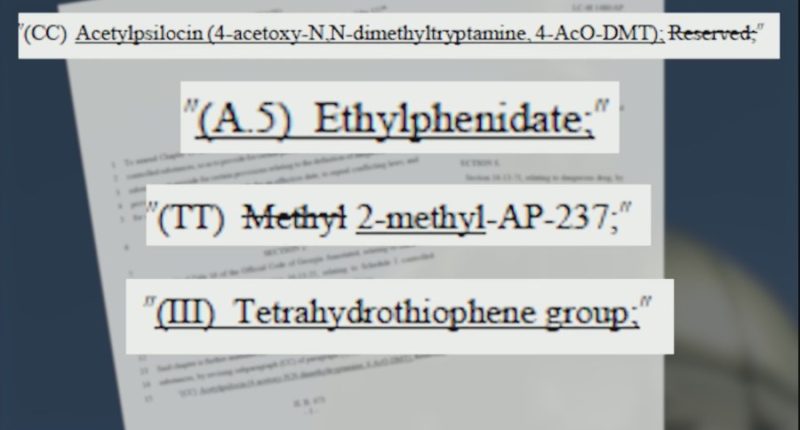Share this @internewscast.com

SAVANNAH, Ga. () – A recently signed bill by Georgia Governor Brian Kemp incorporates four new drugs into the state’s Schedule I controlled substances list.
The substances that were just added are all fairly new according to lawmakers, but now, the law is catching up.
“This measure ensures that our laws remain current, allowing us to prosecute individuals involved in the production, transportation, or sale of these substances,” explained State Rep. Ron Stephens (R-Savannah), the bill’s sponsor.
There are six classes of controlled substances. Drugs are classed based on medical use and how addictive they are.
The new additions to Georgia’s Schedule I list are 2-Methyl-ap-237, Acetylpsilocin (4-acetoxy-n,n-dimethyltryptamine, 4-aco-dmt), Ethylphenidate, and the Tetrahydrothiophene group.
“These are in class I, which means that they’re just as addictive as class II, but they have no medical use,” Stephens said.
According to Stephens, one of the substances is an upper that has similar effects to a drug that was manufactured for hyperactivity in children. Another is an opioid.
However, these drugs, many of which Stephens said are homemade using over the counter or existing products in different drug classes, are unregulated.
“We have some smart kids. They’ll come out from, especially a lot of our institutions of higher learning,” he said. “We move them around, but these kids are smart, and we just try to stay ahead of the game.”
Unfortunately, the consequences for some can still be deadly.
“There is no second chance if you don’t have a narcotic antagonist around like a Narcan to block the antagonistic effects of this stuff, and some of these kids unfortunately are passing away,” Stephens said.
In Georgia, possession of a schedule I substance is a felony and can come with prison time.
Now, that penalty will apply to the new drugs listed in the bill.
“Because it is a chemical that’s named in this bill, then they [law enforcement] have the ability to carry out the law and enforce it and put these folks behind bars,” Stephens said.
However, he added that medical professionals are always finding new uses for drugs that were previously classed higher, like marijuana, which is now widely used to help people with a variety of illnesses.
Stephens, a pharmacist by trade, also said he has legislation in the works for the next session to fast-track new treatments for patients that need them.










